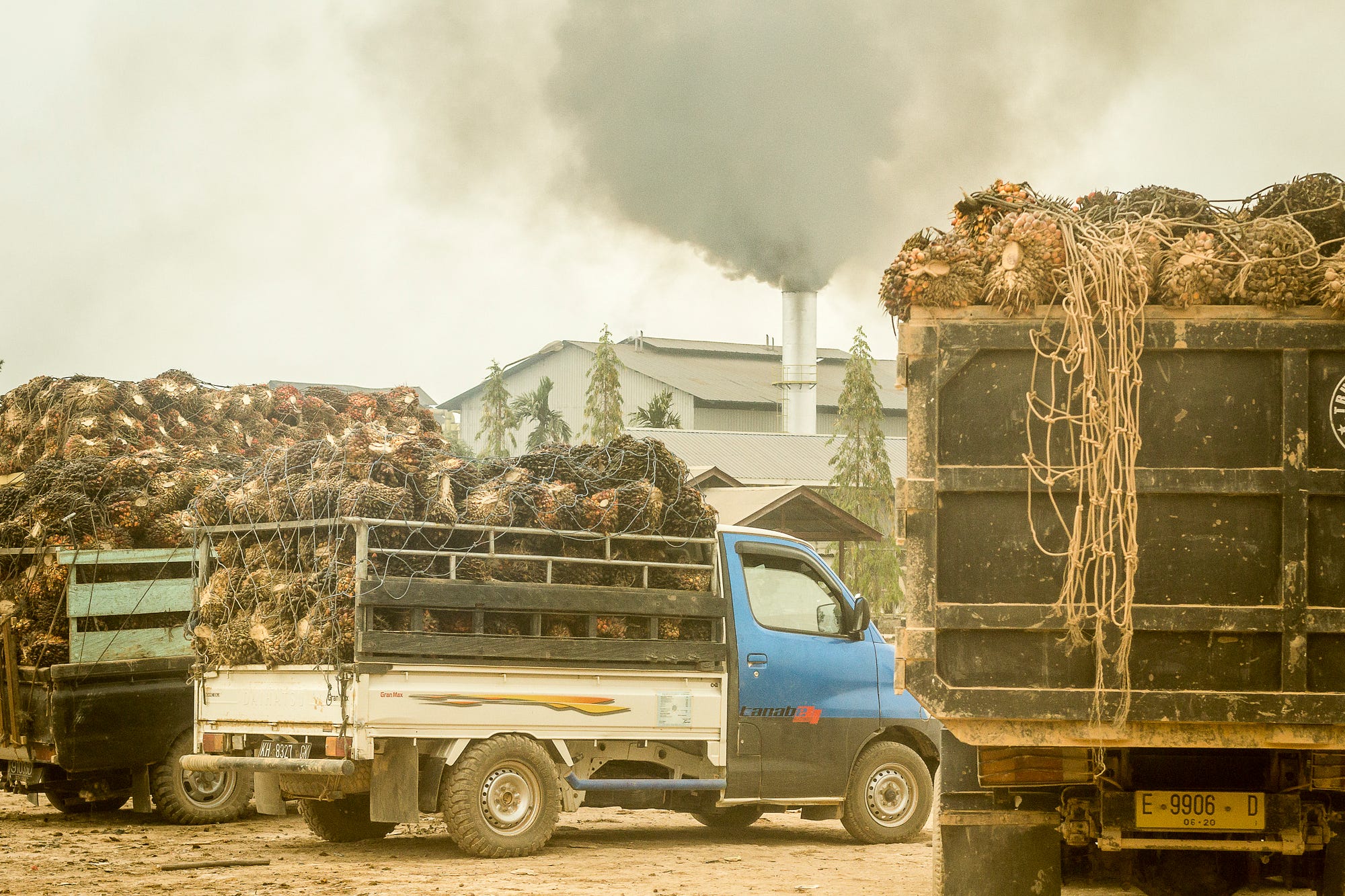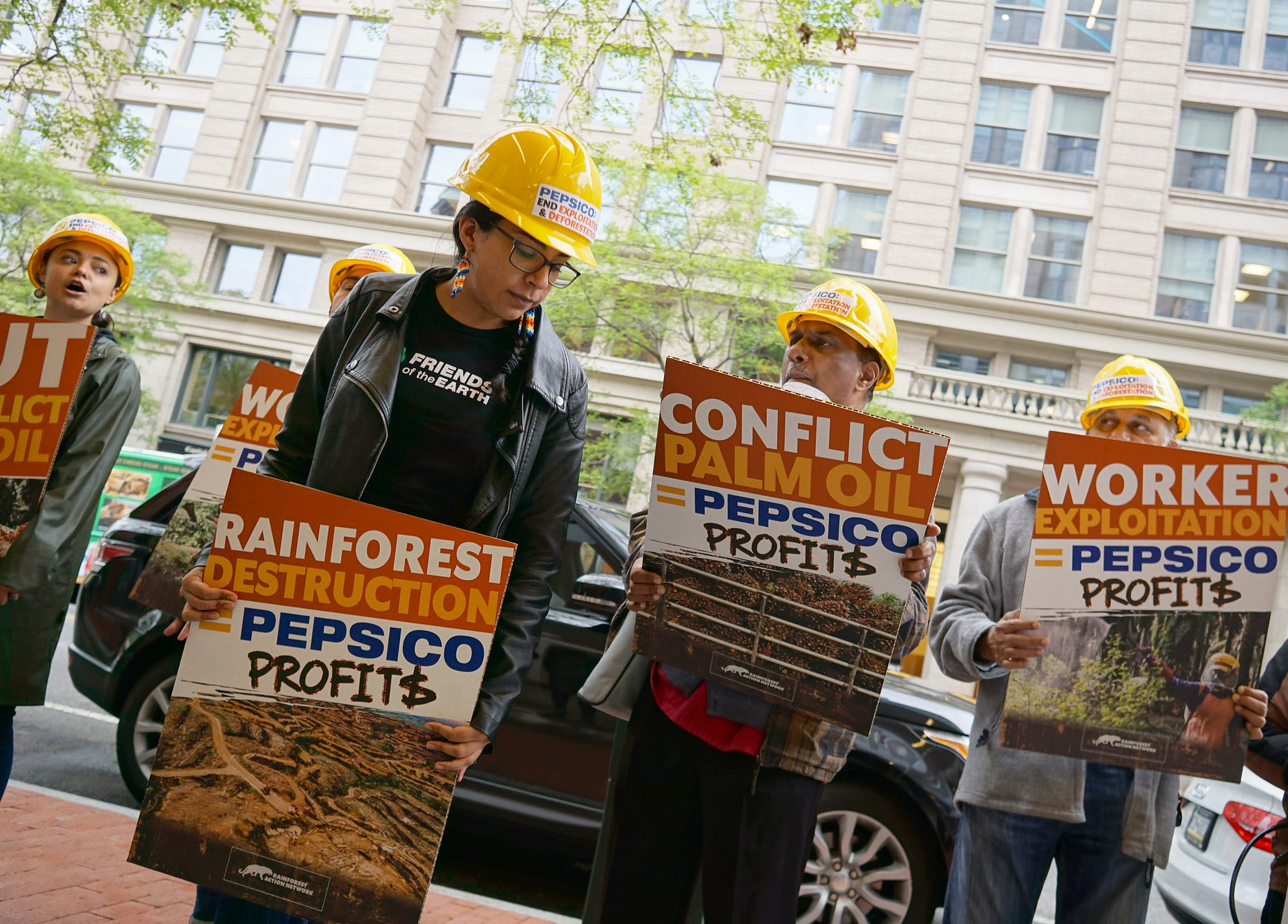
CalPERS’s New Policy Is a Good Step Forward for Forests and Human Rights
With the Trump regime on an all-out rampage against human rights and the environment, it’s hard to find good news these days. But there are venues for change that evade Trump’s ’s myopic vision, and its important that we find these venues and celebrate victories when we have them. One story to celebrate this week is the publication by CalPERS, the California Public Employees’ Retirement System, of an expanded set of principles to address the environmental and social risks and impacts of its investments.
CalPERS manages $356 billion for nearly 2 million members and owns stock in over 10,000 companies, so the choices CalPERS makes matter. The nation’s largest public investment fund is already known as a generally progressive force in the very conservative world of pension finance, and the new revisions to its Governance and Sustainability Principles take it to a new level of leadership in pointing a way forward for institutional investors.
As a set of governance principles, CalPERS’s new policy empowers the agency to press its investees on a host of progressive issues, such as sexual harassment, the gender composition of company boards and CEO pay. But its most notable revisions have to do with how CalPERS addresses environmental impacts. CalPERS has rightly faced heat from enviros for refusing to consider divestment from fossil fuels — a stance that is regrettably maintained in the new policy. But, nonetheless, the new policy gives extraordinary attention to some crucial climate issues: deforestation, land use and the related human and labor rights issues. (Full disclosure here, Friends of the Earth has been deeply involved in pushing for these changes.)

In its revisions that pertain to environmental concerns, CalPERS’s new policy gives the agency a mandate to address “change, volatility or deterioration in the environment that may impact business operations, such as climate change, extreme weather, decline of biodiversity, change in access to clean, [and] affordable and adequate sources of water.” Additionally, the new policy sets expectations that companies manage their “impacts on the environment, including reputational or market access risks posed by the company’s environmental impacts, including emissions, pollution, waste, degradation of natural ecosystems (e.g. deforestation).”
The new policy gives extraordinary attention to some crucial climate issues: deforestation, land use and the related human and labor rights issues.
The policy also gives CalPERS a mandate to ask any of its investee companies to disclose “how the company identifies, assesses, and manages environmental risks and opportunities including how [it] works to ensure its business models and supply chain are robust, responsive, and resilient; if and how [it] uses internal pricing for carbon, water, or other natural resources; how [it] manages traceability issues in its supply chain; and how [it] identifies and manages impacts on local environments and communities including public health, land rights, and just transition in relation to workers.”
This makes CalPERS the first large asset manager in the U.S., public or private, to adopt policy language recognizing that deforestation and ecosystem degradation pose material risks; the first to acknowledge “land rights” as an issue requiring disclosure by companies; the first to ask companies how they will manage a “just transition” for workers; and possibly the first to ask for disclosure of supply chain traceability — a crucial issue that has ramifications for everything from abusive palm oil sourcing to human trafficking. Notably, a new provision in its “human capital management” approach expands CalPERS’s endorsement of human rights principles to include direct acknowledgement of “free, prior and informed consent as a standard in relation to Indigenous Peoples’ rights.” This makes CalPERS the first institutional investor in the U.S. to take note of one of the most crucial concepts in the protection of land rights around the world.
In short, CalPERS’s new policy is precedent setting, and provides a model we hope other investors will follow and expand upon.
That said, this is where we hit pause. The reason it’s so important that CalPERS has such a policy — and the reason why Friends of the Earth has urged CalPERS to step up on this issue — is because CalPERS has a serious deforestation problem. Roughly 12 percent of total greenhouse gas emissions globally are caused by deforestation, and some 80 percent of global deforestation is driven by agriculture, primarily by palm oil, soy, timber, pulp and paper, cattle and rubber. CalPERS has at least $800 million invested in these sectors. If you add CalPERS’s investments in the consumer goods companies that create demand for these commodities and the global banks that finance deforestation, the figure soars into the billions. Analysis by Chain Reaction Research published today shows that CalPERS’s new policy “could impact at least 189 companies, of which CalPERS has invested an estimated USD 2.3 billion.”
CalPERS’s recognition of deforestation and supply chain concerns in its new policy is part of a positive trend toward recognition of deforestation as a major driver of the climate crisis — and a growing problem for investors. As they say, the first step toward a solution is recognizing you have a problem, and CalPERS has taken a bold step in recognizing its deforestation problem. That’s good.
Roughly 12 percent of total greenhouse gas emissions globally are caused by deforestation, and some 80 percent of global deforestation is driven by agriculture.
But even as this trend grows, the problems persist. Just last month we learned that four of Asia’s conflict palm oil giants continue to buy palm oil from illegal plantations inside Indonesia’s Tesso Nilo National Park, driving the destruction of a global biodiversity hot spot. Two of those companies, Wilmar International and Golden Agri-Resources, are CalPERS investees.
Wilmar was also exposed just this month for involvement in deforesting an area twice the size of Paris. The company only recently canceled its contractwith a palm oil company linked to a deadly ecocide and the killing of human rights defender Rigoberto Lima Choc in Guatemala two years ago. And Golden Agri-Resources happens to hold the reigns of another very problematic company — Golden Veroleum Liberia, whose abuses we detailed in a report published last week. Just prior to our publication, that company was also rebuked by the Roundtable on Sustainable Palm Oil for ongoing problems including deforestation and flagrant abuses of community land rights. CalPERS, as an investor, has a responsibility to engage with these issues — a responsibility which it has now nominally accepted by recognizing the issues in its new policy.

CalPERS also holds over $500 million in PepsiCo and could take action on deforestation by pressuring PepsiCo to address problems with Indofood, its Indonesian joint venture. (Though CalPERS also owns over $800 million in Indofood, and could deal with Indofood’s deforestation problem directly.)
Let’s be clear: no investor, CalPERS included, should own shares in these giants of conflict palm oil unless they intend to use their ownership stake to end deforestation, halt attacks on land and human rights defenders and dis-incentivize land grabbing.
And this is just what the new policy gives CalPERS, the largest public pension fund in the U.S., the mandate to do.
Of course, in order for that to be, CalPERS needs to put this new policy into action quickly, forcefully and effectively. We’ll be watching to see that they do.
In dark times, the finance industry is not the first place you’d look for signs of positive social change. But if CalPERS can use its progressive policies and its financial leverage to drive back deforestation and advance human rights, while continuing to provide for Californians’ retirement, it just might be a real part of the climate solution.
Let’s hope so.
Related Posts
Ways to Support Our Work

Read Latest News
Stay informed and inspired. Read our latest press releases to see how we’re making a difference for the planet.

See Our Impact
See the real wins your support made possible. Read about the campaign wins we’ve fought for and won together.

Donate Today
Help power change. It takes support from environmental champions like you to build a more healthy and just world.